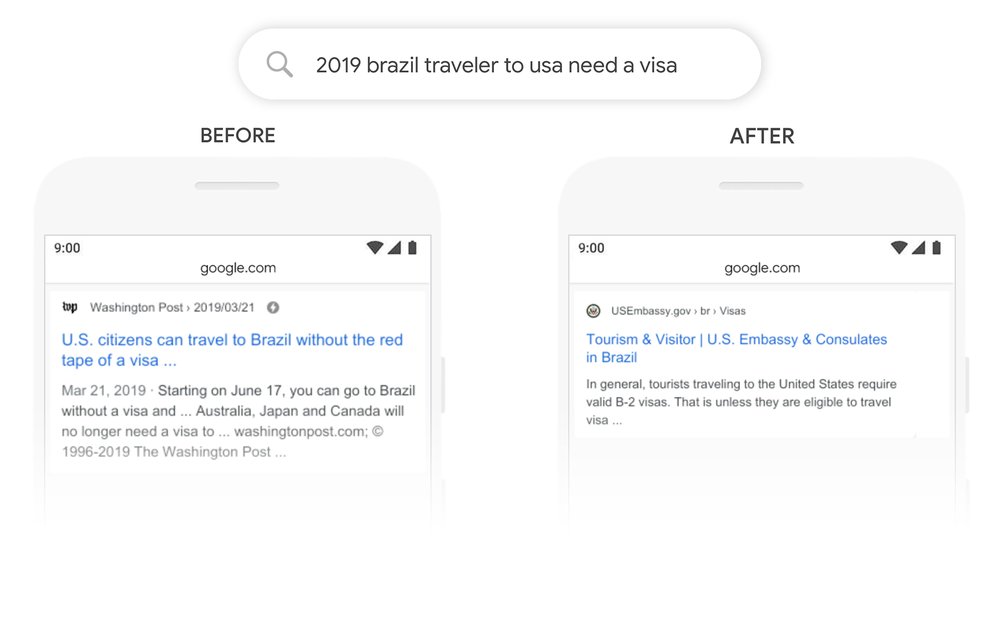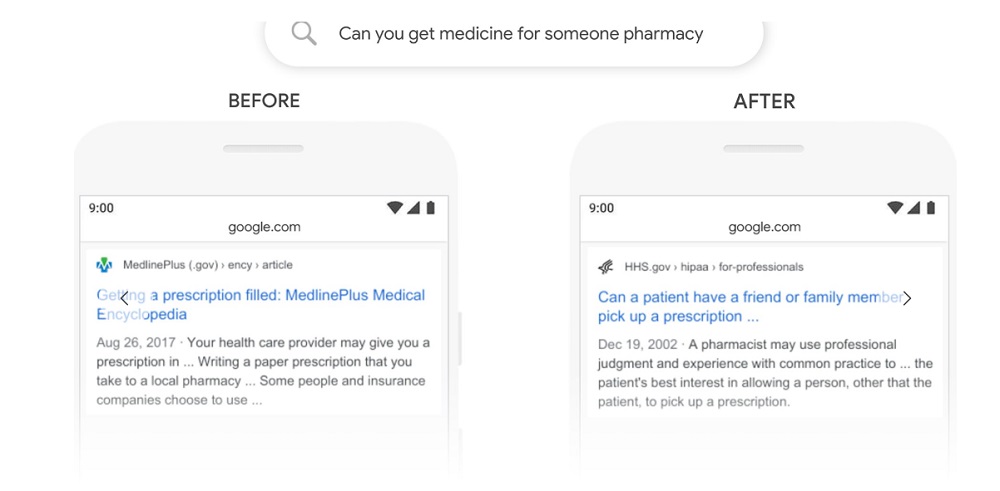BERT – The Curious Update of Google
Even the founders of Google never ever imagined that Google would become a search behemoth after 20 years. There is a lot of elements that make Google a search engine market piece; one of the main, Google understands search intent and provides point-to-point information for each user.
The secret ingredient behind Google’s success is its algorithm. Google is continually updating its algorithm over the last two decades to serve relevant and high-quality results. In a series of updates, Google came up with the new one named “BERT”.
Generally, the search company does not announce any of its updates, however, this time they are kind enough to announce its largest update in almost 5 years. BERT is one of the biggest advances in the history of search that will impact 10% of all search queries worldwide.
What exactly is BERT Algorithm?
The technical definition of BERT is:
BERT, is simply an acronym for Bidirectional Encoder Representations from Transformers, is a neural network-based technique for natural language processing (NLP) that helps Google to understand context on the word-by-word basis and then to deliver the better search results.
Let me explain this in layman’s terms,
BERT is a machine learning algorithm that helps Google to better understand what is the context, like the way humans depict a sentence.
Before the launch of this update, Google was picking a sequence of important keywords from a search phrase and then put a result on the basis of those keywords.
By applying BERT, it will be easier to interpret conversational queries wherein prepositions like “for” and “to” will matter a lot in the query.
Now, Google Search is better able to solve the word riddle rather than searching a sequence of keywords.
As per Google:
“These improvements are oriented around improving language understanding, particularly for more natural language/conversational queries, as BERT is able to help Search better understand the nuance and context of words in Searches and better match those queries with helpful results.
Particularly for longer, more conversational queries, or searches where prepositions like “for” and “to” matter a lot to the meaning, Search will be able to understand the context of the words in your query. You can search in a way that feels natural for you.”
What does Google BERT Algorithm do?
The following examples will help you to see the impact of BERT algorithm on search results-
Example 1) in the phrase “2019 brazil traveler to usa need a visa”, the word “to” and its relationship to the other words are important to understand the true meaning of the query.
Previously, Google wouldn’t understand the importance of prepositions and their connection, and returned results about ‘U.S. citizens traveling to Brazil’ whereas this is about “Brazilian traveling to the U.S”.
Google said, “With BERT, the search is able to grasp this connotation and very well know that this common word “to” is a pivotal part of this query, and we can provide a much more apt result for this query.”

Example 2) Here is one more example- with the help of BERT, Google can understand the subtle nuances of language like the way humans do for “Can you get medicine for someone pharmacy.”

BERT understands that “for someone” actually matters a lot here and fathoms that whether I am (searcher) allowed to pick up a prescription for someone else, whereas previously Google showed the results related to “filling prescriptions”.
How will Google BERT affect SEO and Businesses?
Don’t panic over BERT! Just because Google updates have hit so many websites in the past. This new algorithm is not created to penalize websites due to any issue, rather, to provide better user experience and a clear understanding of searcher’s intent.
As per search algorithm expert Dawn Anderson (@dawnieando on Twitter),
“it won’t help websites that are poorly written.”
However, the impact of Google BERT on SEO will definitely be noticed in the near future.
According to Google, “BERT will help Search better understand one in 10 searches in the U.S. in English, and we’ll bring this to more languages and locales over time.”
Basically, the BERT update affects longer search queries to provide the appropriate answers for conversational search queries that are entered or typed by the user in the form of a question or a group of words into the search bar.
Hence, based on what Google Search team have said about it, this algorithm update may affect two types of searches–
- BERT targets “long-tail search terms” that may contain longer word counts
- Google said BERT will be more focusing on ‘Conversational search queries’
So, if you see a sudden drop in the traffic or ranking to your website, it’s quite possible that this algorithm update is the cause behind it.
If you are worried about the drop in your organic traffic with the BERT update, you can create a list of specific pages that have lost the traffic because BERT will most likely impact content pages like blogs for long-term queries.
How will you protect your website from the Google BERT update?
As Google always states that “Content is the supreme ruler of the search landscape.”
After the release of this new algorithm, you need to focus on a few points to get high traffic and better rankings-
- Research the conversational queries related to your business and check the search results
- Optimize your website on the basis of search results with appropriate keywords
- Keep optimizing content not just for keywords, but for searchers to generate a better connection with them
- Focus more on long-term search phrases to get tons of organic traffic
- Write more highly-researched, more in-depth, long-form content that allows detailed exploration of a specific topic
Believe me, if your website has all the qualities to satisfy the user intent, it will not only rewarded with higher rankings but also with better leads.
Conclusion
I would like to conclude by saying that you don’t have to worry about BERT so much. Keep an eye too closely monitor your website traffic and rankings for few weeks, if you see any changes in your organic traffic and rankings, check the webpage content and make sure the webpage you are trying to rank for matches the searcher intent.
Understanding the intent of the user is not only help in getting traffic but also increase the website’s relevance to related search terms.
“You have no choice how to lose, but you have a choice of how to win again.”




Thanks for the article. Maybe we are moving towards an interactive/conversational search Engine. Instead of a client-server give & take with a search engine “interface”, we might have a more human-like pocket friend whom we can chat with while getting all the info we need..